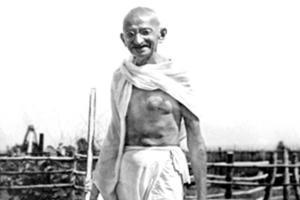The jail has a 'bhajani mandali' comprising some inmates who, with the help of some musical instruments, will be performing bhajans on Wednesday

This picture has been used for representational purpose
A group of inmates from Yerwada Central Prison in Maharashtra's Pune city will recite 'bhajans' in the jail's Gandhi Yard, where the famous 'Poona Pact was signed, to mark the 150th birth anniversary of Mahatma Gandhi on Wednesday. The pact was signed between Dr Babasaheb Ambedkar, Madan Mohan Malviya and other negotiators from the two sides on September 24, 1932 on reservation for 'depressed classes', in a bid to end the fast that Gandhi was undertaking in the jail.
ADVERTISEMENT
Gandhi was protesting against the British government's announcement of the 'communal award', which was considered as one of the means to divide and rule in India. After the pact was signed, Gandhi ended his fast. "Gandhiji spent a considerable time in Yerwada jail during the freedom struggle. The famous 'Poona Pact' was also signed here under a tree. To mark the 150th birth anniversary of Bapu, we have decided to organise a series of events in the Gandhi Yard on October 2," the prison's prison superintendent, U T Pawar, said.
The jail has a 'bhajani mandali' comprising some inmates who, with the help of some musical instruments, will be performing bhajans on Wednesday, he said. Rajendra Dhamane, who retired as Deputy Inspector General (Prisons) two years ago, said when he was the Yerwada jail's superintendent, he tried to preserve the Gandhi yard and the mango tree under which the pact was signed. "In 2007, when the Poona Pact completed 75 years, we collected some literature on the pact, rare photos of Gandhiji, who was lodged in the prison thrice, and his stay at the jail and preserved them at the Gandhi yard," he said.
Dhamane said he also prepared an audio clip, explaining about the 'Poona Pact', which used to be played at the yard for visitors. "We even managed to obtain entries of Jawaharlal Nehru and Sardar Vallabhbhai Patel of their visits to Gandhiji at the jail," he added. Gandhi was against some provisions of the communal award on separate electorates for the depressed classes. Since he felt it would dissect the Hindu society, he started fast in jail. Ambedkar, however, was in favour of separate electorates for the depressed classes. In his letter to British Premier Ramsay MacDonald on September 9, 1932 to communicate his decision to go on fast from September 20, Gandhi stated, "In the establishment of seperate electorates at all for the depressed classes, I sense the injection of poison that is calculated to destroy Hinduism and do no good whatever to the depressed classes."
As public pressure was building on Gandhi to end the fast because of his deteriorating health, a settlement was made between Ambedkar and Gandhi which was later referred to
as the 'Poona Pact'. One of the provisions of the pact was to provide certain seat reservations in provincial legislatures to the depressed classes.
Catch up on all the latest Crime, National, International and Hatke news here. Also download the new mid-day Android and iOS apps to get latest updates
 Subscribe today by clicking the link and stay updated with the latest news!" Click here!
Subscribe today by clicking the link and stay updated with the latest news!" Click here!






